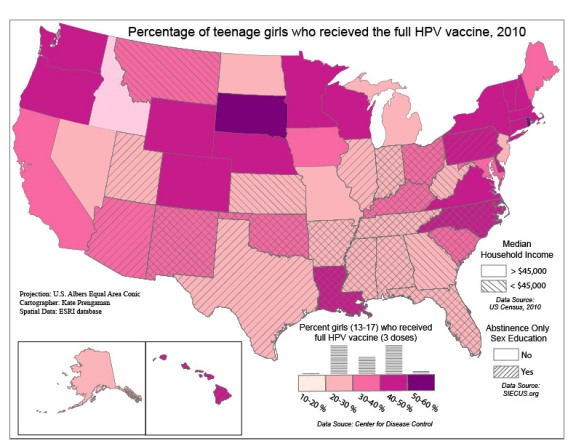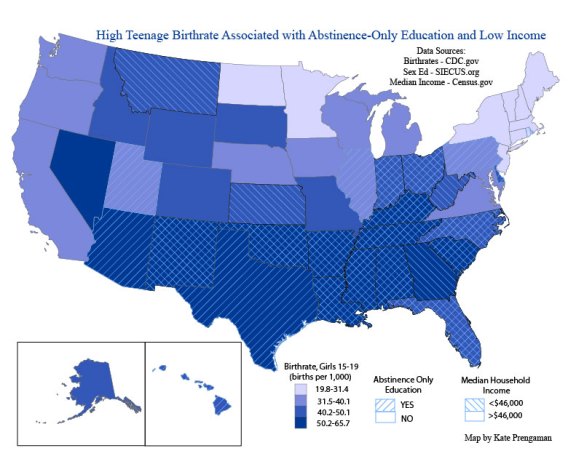Imagine if there was a vaccine that could prevent cancer. Everyone would want it, right?
Surprisingly, no. There IS a vaccine to prevent cervical cancer, which affects about 12,000 women every year, according to the CDC. Unlike most cancers, cervical cancer is caused by a sexually transmitted virus, Human Papillomavirus, also known as HPV. The virus can cause abnormal cell growth in the cervix, which can turn cancerous. The vaccine, approved in 2006, works against many common strains of HPV.
The vaccine is recommended for girls ages 11-12, and also provided to women up through their early twenties. The goal is to protect girls long before they are ever sexually active, so that they never contract HPV in the first place. As of 2011, the vaccine is also recommended for adolescent boys.
HPV is so common that more than half of all sexually active men and women in the United States will be infected with HPV at some point in their lives. According to a CDC factsheet on the HPV vaccine, “about 20 million Americans are currently affected, and 6 million more are infected every year.” In most people, HPV infections never lead to symptoms, but it can cause development of cancer of the cervix, and, more rarely, cancer of the vagina and anus, as well as genital warts. Men can also develop cancer from HPV. The virus is transmitted through skin to skin contact, so condoms are not nearly as effective at preventing the spread of this disease, as they are for many other STDs.





